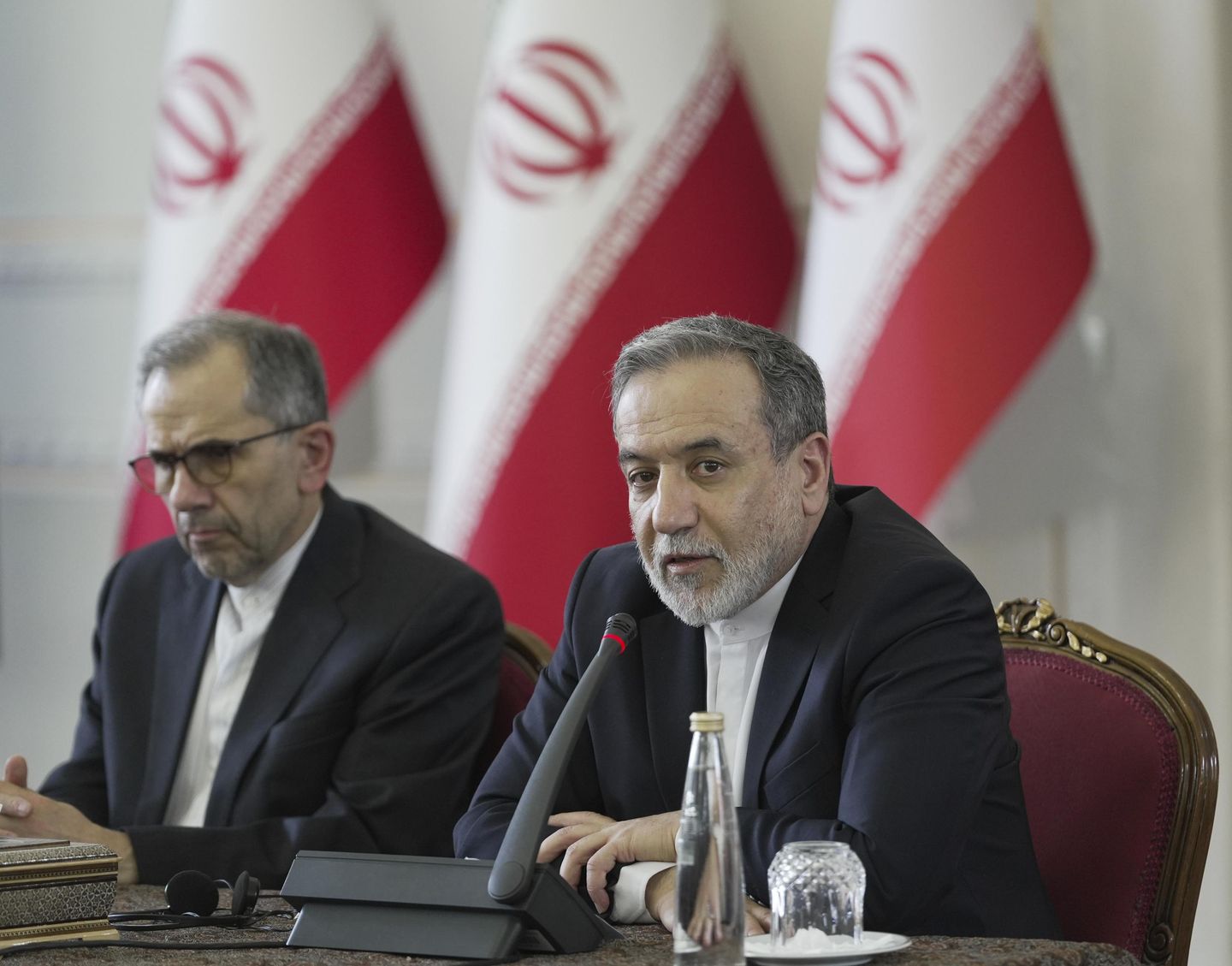
Tehran and its allies are ready for the possibility of new U.N.-backed sanctions if Europe decides to trigger the snapback mechanism of the Joint Comprehensive Plan of Action.
Iran’s foreign minister made the statement on Wednesday as the Aug. 31 deadline approaches.
Speaking to state-affiliated media, the Iranian minister, Abbas Araghchi, said it would be illegal for Europe to trigger the mechanism but maintained his country is prepared anyway.
“The economic sanctions of the Security Council are far more limited than the current unilateral U.S. sanctions,” Mr. Araghchi said. “Things will not become any worse than the current situation. Yes, from a psychological and political, and even strategic point of view, there are consequences, but not to the extent that it would bring diplomacy to a dead end or paralyze the country.”
In July, leaders from France, Germany and the U.K. declared that they would trigger the snapback mechanism at the end of August if no diplomatic progress is made on Iran’s nuclear program. Iran and the E3 leaders met at the end of July for talks in Istanbul but didn’t reach an agreement.
Europe asserts that Iran’s uranium enrichment level violates its obligations under the JCPOA. Conversely, Iran argues that Europe and the U.S. have abandoned the treaty and therefore lack the authority to impose additional sanctions.
If triggered, the snapback mechanism would impose a ban on arms exports to Iran as well as restrictions on drone and missile programs. Top Iranian officials would also face new asset seizures and travel restrictions under the sanctions, which could stymie Iran’s efforts to strengthen ties with Asian and European allies.
The threat of renewed U.N. sanctions presents a crisis for Iran as it seeks to establish diplomatic legitimacy following its damaging air war with Israel, plus America’s obliteration of Iran’s nuclear sites, in June. Both Russia and China have deepened their economic and military ties with Iran in recent years, even in the face of stringent Western sanctions.
However, Iran’s geopolitical position has weakened significantly over the past year, with fewer proxies abroad and damaged defensive capabilities at home.
In the face of new sanctions, Russia and China may reevaluate their relationship with the Islamic Republic.
“Would Russia and China risk violating U.N. sanctions for the sake of Iran?” Janatan Sayeh, an Iran analyst at the Foundation for Defense of Democracies, said. “They haven’t made up their mind, but the war and the current water and power crisis, coupled together, have, from Beijing and Moscow’s perspective, they don’t necessarily see Iran as a viable ally like they did a few years ago.”
Still, Russia and China have remained publicly supportive of Iran during the snapback crisis and have signaled they may not recognize the new sanctions. On Tuesday, Iran’s Deputy Foreign Minister Kazem Gharibabadi met with Russian and Chinese officials to discuss options if Europe levies new sanctions.
Russian and Chinese officials have mirrored Mr. Araghchi’s claims that triggering the snapback mechanism would be illegal.
“China stays committed to peacefully resolving the Iranian nuclear issue through political and diplomatic means [and] opposes invoking Security Council snapback sanctions,” Chinese Foreign Ministry spokesman Lin Jian said last week.
Iranian diplomats are in a difficult position when dealing with European officials.
“Ultimately, [Iran] cannot publicly come out and say, ’We are doubling down on this. We’re putting all our eggs in this basket, and we’re really optimistic about Europe working with us’ — in case it doesn’t go through,” Mr. Sayeh said. “They know what the Europeans want. They know Europe has said zero enrichment. It’s very unlikely for them to give up on this enrichment issue, given that they literally fought a war over it.”
The E3 ultimatum came after Iran’s Parliament passed a law suspending cooperation with the International Atomic Energy Agency. Under current law, any further IAEA inspections must be approved by Iran’s Supreme National Security Council.
Relations between Tehran and the IAEA have soured since the 12-day Iran-Israel air war. Before that, the IAEA’s Board of Governors reported Iran to be violating its nonproliferation obligations, which Tehran argued gave Israel and the U.S. justification for its strikes on Iran’s nuclear sites.
Following its meeting with E3 leaders, Tehran announced it would hold a series of talks with IAEA officials to discuss the future of the agency’s relationship with Iran. Iran’s Foreign Ministry reported Tuesday that both parties met last week and have plans for further talks this month.














